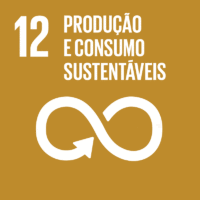Ciência_Iscte
Publicações
Descrição Detalhada da Publicação
EV battery degradation: A data mining approach
Intelligent Transport Systems: 5th EAI International Conference, INTSYS 2021, Proceedings
Ano (publicação definitiva)
2022
Língua
Inglês
País
Suíça
Mais Informação
Web of Science®
Scopus
Google Scholar
Esta publicação não está indexada no Overton
Abstract/Resumo
The increase in greenhouse gas emissions into the atmosphere, and their adverse effects on the environment, has prompted the search for alternative energy sources to fossil fuels. One of the solutions gaining ground is the electrification of various human activities, such as the transport sector. This trend has fueled a growing need for electrical energy storage in lithium-ion batteries. Precisely knowing the degree of degradation that this type of battery accumulates over its useful life is necessary to bring economic benefits, both for companies and citizens. This paper aims to answer the current need by proposing a research question about electric motor vehicles. It focuses on habits EV owners practice, which could harm the battery life. This paper seeks to answer this question using a data science methodology. The results allowed us to conclude that all other factors had a marginal effect on the vehicles’ autonomy decrease except for the car year. The biggest obstacle encountered in adopting electric vehicles was the insufficient coverage of the charging stations network.
Agradecimentos/Acknowledgements
--
Palavras-chave
Electric vehicles,Charging process,Behavior
Classificação Fields of Science and Technology
- Ciências da Computação e da Informação - Ciências Naturais
- Engenharia Eletrotécnica, Eletrónica e Informática - Engenharia e Tecnologia
Registos de financiamentos
| Referência de financiamento | Entidade Financiadora |
|---|---|
| UIDB/04466/2020 | Fundação para a Ciência e a Tecnologia |
Contribuições para os Objetivos do Desenvolvimento Sustentável das Nações Unidas
Com o objetivo de aumentar a investigação direcionada para o cumprimento dos Objetivos do Desenvolvimento Sustentável para 2030 das Nações Unidas, é disponibilizada no Ciência_Iscte a possibilidade de associação, quando aplicável, dos artigos científicos aos Objetivos do Desenvolvimento Sustentável. Estes são os Objetivos do Desenvolvimento Sustentável identificados pelo(s) autor(es) para esta publicação. Para uma informação detalhada dos Objetivos do Desenvolvimento Sustentável, clique aqui.

 English
English




